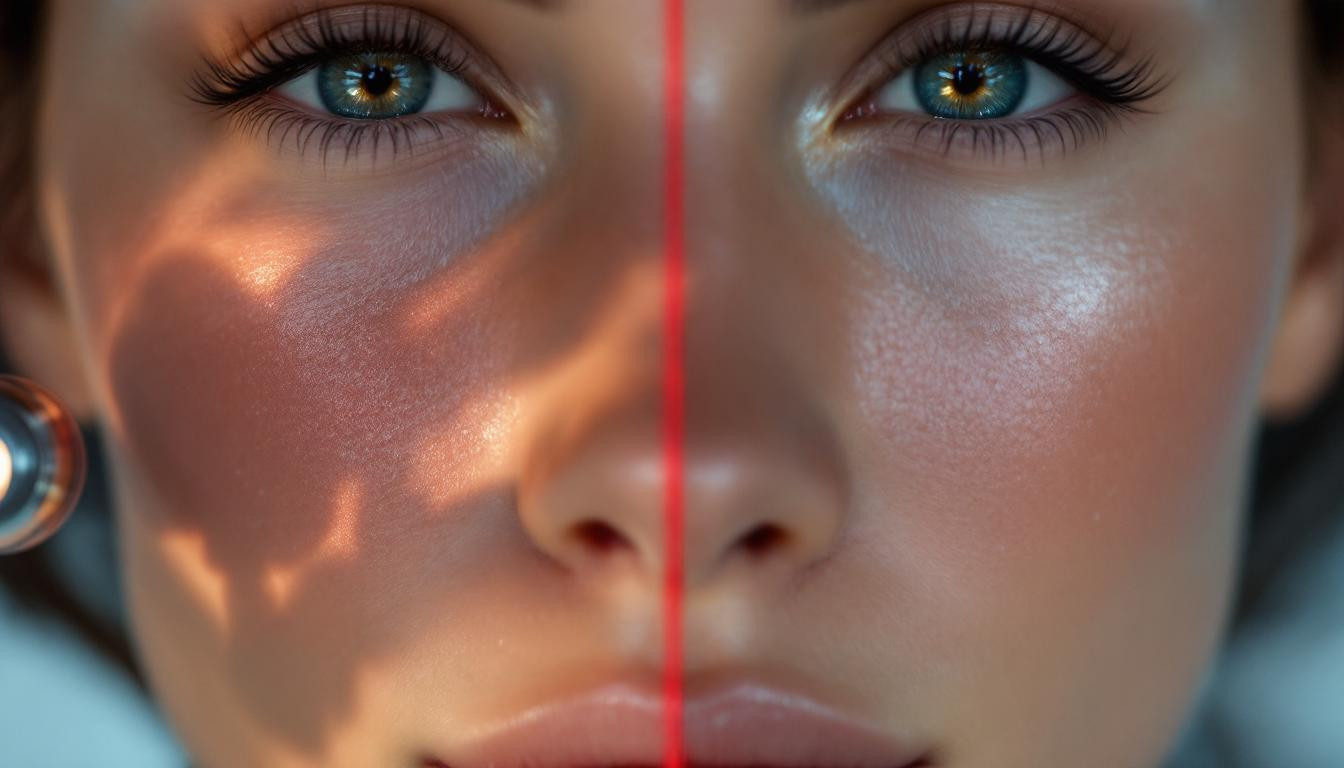Summer sun is at its peak this July, and while many are seeking ways to maintain youthful skin, dermatologists are raising an important warning flag. That anti-aging laser treatment you’ve been considering? It might actually be worsening your melasma instead of helping it.
Why your anti-aging treatments could be backfiring this summer
As temperatures soar in mid-2025, skincare experts are cautioning that certain popular anti-aging procedures may be doing more harm than good for those with melasma – those stubborn brown patches that appear on the face.
“If you’ve been treating your melasma with laser or cosmetic procedures and noticed your pigmentation darkening or becoming more stubborn, you’re not alone,” explains Dr. Heather Jenkins, a leading cosmetic physician who sees this problem frequently during summer months.
The heat-melanin connection you need to understand
The science behind this counterintuitive effect lies in how melasma behaves. Heat-based treatments, including popular options like radiofrequency microneedling and various laser therapies, can stimulate melanocytes – the cells that produce pigment in your skin.
“Anything involving heat should be used with extreme caution by those who have melasma. Heat stimulates melanocytes to produce melanin,” warns Dr. Rebecca Marcus, dermatologist and melasma specialist.
This mechanism creates a perfect storm during summer, when UV exposure already threatens to worsen pigmentation issues. The combination can lead to what dermatologists call post-inflammatory hyperpigmentation (PIH), making melasma significantly harder to treat.
Which treatments are the biggest offenders?
According to experts, several popular anti-aging treatments pose particular risks:
- Nonablative fractional lasers
- Ablative fractional lasers
- IPL (intense pulsed light) treatments
- Q-switched laser treatments
“Most lasers and IPL are based on elective photothermolysis. However, an adverse basal layer inflammation can result in repigmentation and post-inflammatory hyperpigmentation,” states Dr. Shamban, a respected dermatologist in the field.
One patient who learned this the hard way shared: “After my laser treatment, my melasma cleared for about a month, but then it came back even worse. I wish I’d known about this risk before spending so much money.” This experience mirrors what many doctors report seeing in their practices.
Safer alternatives for summer skincare
Instead of heat-based treatments, experts recommend focusing on evidence-based, gentler approaches during the summer months. Many find success with treatments that avoid triggering inflammation, such as targeted masks that address dark spots.
“Disrupting the skin barrier through aggressive procedures leads to increased sensitivity and pigment retention,” Dr. Jenkins notes. This is especially problematic when combined with potentially irritating makeup products that many use to cover melasma.
The essential summer protection strategy
For those managing melasma this July, experts recommend:
- Rigorous daily sun protection with broad-spectrum SPF 30+
- Wearing wide-brimmed hats and seeking shade
- Using topical tyrosinase inhibitors like hydroquinone
- Considering oral tranexamic acid under medical supervision
“Combination therapy often leads to the highest efficacy and most sustained results, but this often comes with an increased risk of adverse effects,” cautions a recent report in Dermatology Times.
The promising future of melasma treatment
Not all technological advances are problematic. Picosecond lasers show promise with fewer side effects, though they still require cautious use. Many patients also report success with cooling treatments that reduce inflammation.
Be wary of ingredients in skincare and makeup products that might contain triggering pigments, which can further complicate melasma management.
Like an unwelcome summer storm, melasma can darken suddenly when provoked by the wrong treatment. The skin’s pigment cells are like sensitive thermometers – responding quickly to heat with increased production.
Is there hope for your summer skin?
Absolutely. “Addressing recurrence and improving treatment personalization are key areas for future melasma management,” notes a researcher specializing in emerging therapies. Even those who have experienced adverse reactions to beauty treatments can find relief with the right approach.
Your summer skin journey may require patience, but with proper knowledge and medical guidance, even stubborn melasma can be managed effectively – without the counterproductive heat that many anti-aging treatments introduce.
